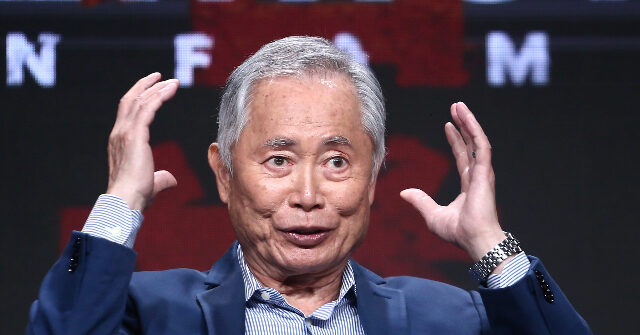George Takei, renowned for his role in Star Trek, has recently called for a boycott of Amazon following the controversy surrounding the Washington Post’s decision to withhold its endorsement of Vice President Kamala Harris for the upcoming presidential election. Takei expressed his discontent on social media, suggesting that if Amazon’s owner, Jeff Bezos, is yielding to political pressures, consumers should respond by avoiding the platform leading up to the election. This boycott comes in light of the Washington Post’s unprecedented choice not to support any candidate for the first time in 36 years, a decision reportedly influenced by Bezos as early voting trends seemed to favor Donald Trump.
The absence of an endorsement from the Washington Post is particularly stinging for Harris, especially given that her hometown paper, the Los Angeles Times, also refrained from endorsing her. Political tensions escalated within the left, with figures like Susan Rice denouncing the Post’s editorial board’s actions as hypocritical. Rice’s comments invoked the Post’s slogan, “Democracy Dies in Darkness,” highlighting the irony of a paper that is traditionally seen as a watchdog of democracy failing to endorse a candidate for the presidency. Social media discourse reflected a mixture of outrage and skepticism, as users critiqued the Democratic Party’s approach to candidate selection, arguing that the party had effectively sidelined Biden in favor of a nominee who had not been elected.
In a show of dissent within the Washington Post itself, editor-at-large Robert Kagan resigned following the non-endorsement announcement. This resignation underscores the internal strife and the significance of the decision in the context of the impending presidential election. Public figures like actor Rob Reiner expressed outrage at the editorial board’s failure to endorse a candidate in what is considered one of the most crucial elections in modern history. The calls for action against both Bezos and the Washington Post intensified, with various personalities publicly canceling their subscriptions as a form of protest.
The political fallout continued as social media users organized calls to action against the Washington Post and Bezos. Prominent individuals disclosed their decisions to terminate their subscriptions, with actress Jeffrey Wright emphasizing the significance of the paper in his upbringing and expressing his disillusionment. Many users expressed similar sentiments, focusing on Bezos’s perceived influence over the editorial decisions of the Post and urging others to follow suit in withdrawing their support for the publication. Criticism directed towards Bezos included allegations of cowardice and the implication that he prioritized his business interests over democratic values.
The situation shed light on the broader political climate, with a significant segment of the left feeling disillusioned and betrayed by the decisions of both the Washington Post and the Democratic establishment. This sentiment extended beyond the specific incident of the non-endorsement and tapped into a sense of frustration with perceived inconsistencies within Democratic politics. Users on social media were quick to point out the irony of Democrats advocating for democracy when faced with circumstances that appeared to undermine the participatory aspect of the electoral process.
As the political landscape evolves, the implications of Bezos’s influence over the Washington Post may resonate long beyond this particular election cycle. The backlash against the Post is symptomatic of a larger ideological struggle within American politics, reflecting tensions between established norms of electoral endorsement and the shifting dynamics of political advocacy in the digital age. As consumers respond to the developments with boycotts and subscription cancellations, the interaction between powerful media entities and public sentiment will continue to play a crucial role in shaping the discourse leading up to the election.

